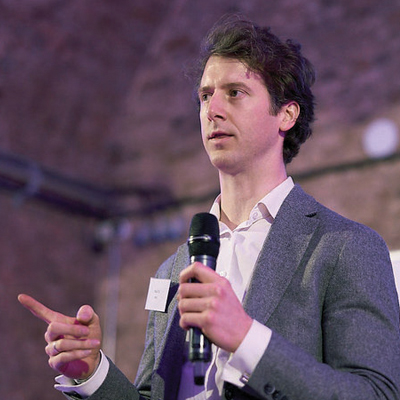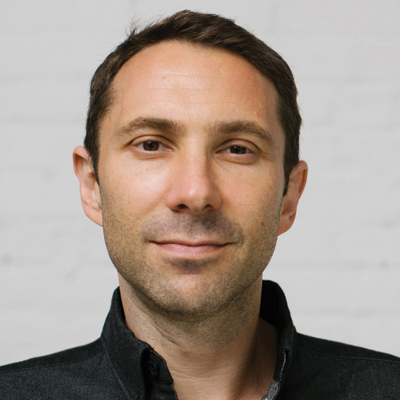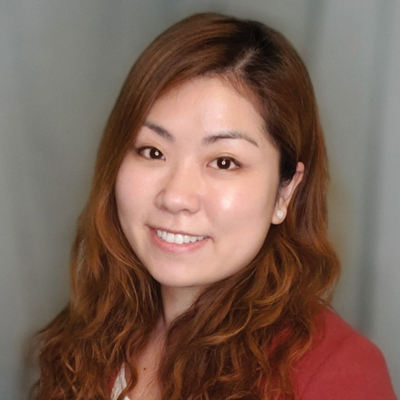Insurtech
Laboratory of the Minds
How the Lloyd’s Lab, an insurtech accelerator, is building a bridge between the newest technology and the oldest insurance market.
Lloyd's roots date to 1688, when ship merchants met in Edward Lloyd's London coffee shop to share a beverage and the risk of doing business. The market evolved over the next three centuries, birthing the term “underwriters”—as risk bearers signed a slip of paper under the description of risk to indicate how much coverage they were willing to offer.
Fast forward to today, when tech companies are working with Lloyd's Lab—an insurtech accelerator—to facilitate partnerships between cutting-edge technology and the traditional world of insurance.
The program brings together 10 or so hand-picked tech companies to collaborate with Lloyd's, where they are partnered with volunteer mentors.
The Lloyd's Lab taps volunteer insurance experts from Lloyd's syndicates to offer insights, help unlock data and make introductions, and help the insurtechs tailor their solutions so they are in line with the Lloyd's market's objectives and values.
Lloyd's has been hosting two cohorts a year, and at the end of November wrapped up Cohort 5, which matched 13 insurtechs with 60 mentors. This cohort included companies based in the U.K., U.S., Ireland, Germany and South Africa.
With both sides signing nondisclosure statements, Lloyd's syndicates can provide data points for the tech companies to use. They also help educate the startups on the ins and outs of the insurance business, and share what kind of products they'd like to see developed. The insurtechs give the insurers a different perspective and a new way of thinking about managing risks and using data.
Competition to enter the program is fierce.
Ed Gaze, senior manager, Lloyd's Lab, said Lloyd's scouts for insurtechs around the world and encourages them to apply for the program. Typically, 150 to 250 hopefuls apply.
“It's really tough to pick the teams,” Gaze said.
A core group from Lloyd's whittles the pack to 40 to 60, then hosts a workshop with 15 or 20 insurance market representatives who vote, reducing the pool to 24. That group is invited to “pitch day,” where they give a five-minute presentation on what they do, then field questions for another five minutes.
An audience from the insurance market then votes. Winners are invited to the 10-week program. Once in the lab—and unlike the “Great British Bake-Off” TV show—no one is booted from the group. At the end, participants present their work during “Demo Day,” a chance to show off what was accomplished during the program.
Normally, the Lloyd's Lab takes place in Lloyd's Lime Street building in London, but the last cohort was fully virtual due to the COVID-19 pandemic and quarantine, Gaze said. “I'm hoping sometime [in 2021] we'll be able to get back to some face-to-face,” Gaze said. “We've really missed building the ecosystem that we had in 2019.”
Working remotely via video chat has been successful, he said, and several of the tech companies were focused on COVID-related solutions.

New relationships, transactions, programs and products that are launched after the Lloyd’s Lab are proof of the program’s success.
Ed Gaze
Lloyd’s Lab

Catastrophes bring out the best in the insurance industry.
Jay Bregman
Thimble
Divided by a Common Language
Insurtechs and insurers can face challenges communicating, even if everyone is speaking English. “Sometimes it's just different language and different culture,” said Paul Prendergast, chief executive officer of Blink, a parametric technology company and Lloyd's Lab participant.
Insurtechs often have insurance questions that can be quickly answered by the right people, Gaze said. “They come to insurers to both sell themselves but also to get some information back and help improve their products,” he said.
The program “really opened up this conversation and closed the gap between insurtech and traditional carriers,” said Cathine Lam, another participant and also the lead data scientist/actuary for Metabiota, an insurtech that tracks epidemics and their economic impact.
“It brings people together—carriers who are seeing new, innovative solutions, and also insurtechs with the right subject matter experts in this think tank—to generate unconventional solutions,” Lam said. “Before Lloyd's Lab, we had lots of ideas, but it's talking with the carriers that's really helped us home in and focus on what matters.”
Praedicat, a liability risk modeling company, has participated in two different Lloyd's Lab cohorts. During the first, the company described its work as casualty catastrophe modeling, which didn't resonate with insurers, said Bob Reville, co-founder, president and CEO, Praedicat.
“There are no casualty catastrophe models today. [Insurers] are not sure that they know what that is or that they want it,” Reville said. However, he said, casualty insurers all have emerging risk functions.
“For us to come in and say we're going to deliver technology-assisted emerging risk information, they know they want that. They like it. It's immediately accepted. Another one is if we say we're delivering technology-assisted underwriting information. They like that, too,” Reville said.
Casualty catastrophe modeling, emerging risk modeling, and underwriting analysis are “just three ways to describe the same thing. The acceptance is different depending on what we call it. ... It's essentially the same activity,” he said.
Insurtechs “quite often go to insurance companies with a bit of the puzzle missing in terms of the knowledge that they have,” Gaze said.
Bob Frady, chief executive officer of HazardHub, an insurtech that maintains an extensive database on what risks individual properties face, said the company had several Lloyd's managing agents as clients when it joined a recent Lloyd's Lab cohort.“We weren't exactly sure how the [managing agents] were using the data,” Frady said. “We thought we needed to learn more about what they do. For example, we thought Lloyd's was an insurance company.”
With its 90 syndicates, Lloyd's can be difficult to approach, said Jay Bregman, CEO of Thimble, also a recent Lloyd's Lab participant. “It's very difficult for smaller companies in particular to get attention from syndicates without someone from HQ to make the introduction,” he said.
Insurers learn from the program, too.
HazardHub knows the perils a property faces—floods, wildfires, wind, hail, tornadoes, underground storage tanks, sinkholes, “all the bad stuff that can happen, as well as some other things like where's the fire station, where's the fire hydrant, how many bedrooms and bathrooms are on the property, how many square feet, etc. … which basically means we're no fun at parties,” Frady said.
“A lot of times people build expensive homes in areas that are tough to insure. They build them in the middle of woods, they build them near rivers. They build them near the ocean. All of which are rife with danger. You don't necessarily want to be the one who tells them that,” Frady said.
Isn't this the exact kind of information that insurers should already have?
“It depends,” Frady said. “It's like saying you have a car. Everybody has a car, but is it the right car? That's what we bring to the table. We have advanced geospatial models for a variety of risks, but we also bring a comprehensiveness to the table that other folks don't have. Some people do have some forms of this data, like some people have a 1959 F-150. We're the modern day version of a lot of that existing type of data.”

Before Lloyd’s Lab, we had lots of ideas, but it’s talking with the carriers that really helped us home in and focus on what matters.
Cathine Lam
Metabiota
Measuring Success
New relationships, transactions, programs and products that are launched after the Lloyd's Lab are proof of the program's success, Gaze said.
The Lloyd's Lab “was enormously valuable,” Frady of HazardHub said. “First of all, not only to understand the structure of Lloyd's and how it works, but also to understand how our data helps them avoid risks or understand what the potential risks are of a property far, far earlier in the process than they do right now. From our standpoint, it was a home run.”
A number of companies in Cohort 5 focused on COVID-related risks. Praedicat, for example, emerged from the lab with a new product that helps insurers discern clash risk—the risk that a single event, like COVID-19, could significantly impact multiple lines, in this case general liability and director and officers lines.
“It's not every day in a three-month period that you can produce a brand new application from scratch,” said David Loughran, senior vice president, Praedicat.
Working with insurance mentors was key to bringing that product forward, he said.
“The collaborative spirit in the lab is perfect for idea generation,” Adam Mitchell, head of group exposure management for Argo, who served as one of Praedicat's mentors, said in a statement.
Through its work with Lloyd's mentors, Metabiota identified three solutions related to epidemics: adapting its existing outbreak surveillance system to send early warning alerts; creating a new COVID-19 risk index that measures the severity for any given location in the world; and creating a tool to estimate related economic losses, Lam said.
“We believe it is critical to quantify, mitigate and manage epidemic risk,” said Jaclyn Guerrero, associate director, product, policy, and partnerships, Metabiota. “We believe epidemic risk is insurable, and insurance should be an important part of a company's pandemic mitigation and resilience plan. Lloyd's will play a key role in setting market standards and developing solutions for the post-COVID landscape.”
Bregman of Thimble, who “wants to bring the Netflix experience to insurance,” said catastrophes “bring out the best in the insurance industry.”
“It's not a coincidence that these real calamitous events have produced … major insurance companies,” Bregman said. “The barometer of risk of every business in America has shifted now.”
Thimble used its time at the Lloyd's Lab to develop a small-face-value business interruption policy that would be triggered by COVID-19 shutdowns.
The company is considering becoming a risk bearer and is looking at forming a captive, Bregman said. “We hope to have that up and running next year. After that, we may decide to become an insurance company in certain states, but basically, we're on a journey to become a full-stack insurer that is able to share risks with our partners.”
Blink, which had been offering a parametric tool for insurers to offer flight cancellation and rebooking, expanded into commercial lines by offering a hurricane-triggered small-face-value business interruption cover.
“Lloyd's Lab has been incredible. Ten weeks ago, we didn't know we were going to do business interruption or hurricane. ... It's probably saved us about a year in terms of insight from the mentors,” Prendergast said.
Perhaps the biggest success story is Parsyl, a tech company that has grown into a Lloyd's syndicate. Parsyl designed a key-fob-sized device to ride with cargo to track conditions, including temperature and humidity, which could be key to protecting the integrity of vaccines.
Together with Ascot as managing agent, and in cooperation with AXA XL, McGill and Partners and Gavi, the Vaccine Alliance, Parsyl launched a “syndicate in a box.” Syndicate 1796 forms the foundation of the new Global Health Risk Facility at Lloyd's, the first public-private syndicate to address a global health emergency in Lloyd's history, the companies said in a statement.
The syndicate will insure the storage and transportation of a COVID-19 vaccine, when ready, to emerging economies. Syndicate 1796 will be backed by development finance capital, allowing it to share risks with leading cargo syndicates, making better, fairly priced cargo coverage available, Lloyd's said.
“It is incredibly rewarding to work with creative talent and the intellectual diversity the Lloyd's Lab environment promotes,” said Tom Hoad, head of innovation for Tokio Marine Kiln and a Lloyd's Lab mentor. “TMK is very active in this space so there are commercial outcomes beyond the mentoring that we expect to pay off over the next few years ”
Learn More
Lloyd’s of London (A.M. Best # 085202)
For ratings and other financial strength information visit www.ambest.com



























